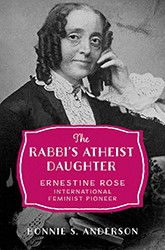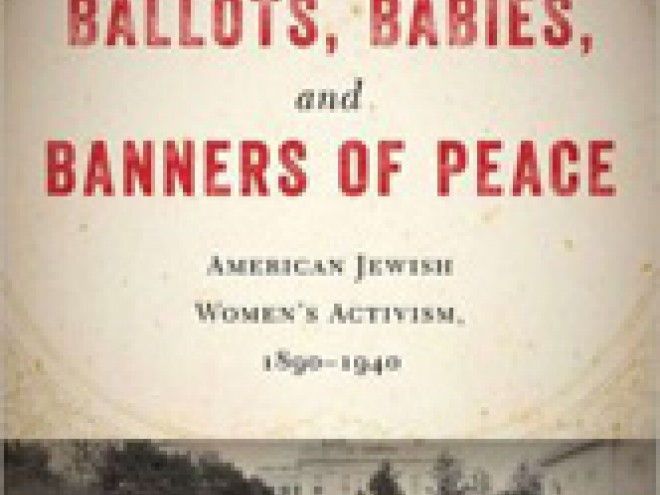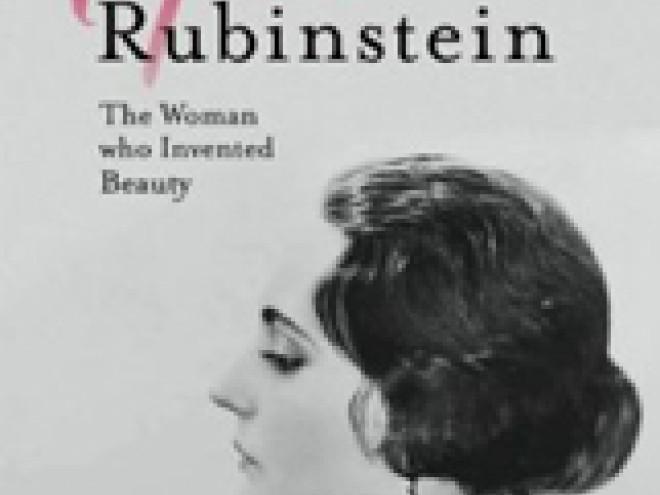
Bonnie S. Anderson is the author of The Rabbi’s Atheist Daughter: Ernestine Rose, International Feminist Pioneer, a biography of “the queen of the platform” for women’s rights, free thought, and abolition in the mid-nineteenth century. In response to current events in the United States, Bonnie is guest blogging for the Jewish Book Council all week as part of the Visiting Scribe series here on The ProsenPeople.
The healthiest way I coped with the election of Donald Trump was to write blog entries about Ernestine Rose, the subject of my recent biography. Rose, who lived from 1810 to 1892, spent her career combatting society’s inequities. She persevered for decades to implement her ideals.
A few months after she arrived in New York City in 1836, she knocked on doors in lower Manhattan, trying to get signatures on a petition for married women’s property rights. Legal doctrine then maintained that “husband and wife are one person and that person is the husband.” Single women could own property, but anything a married woman possessed or earned, from a salary to a pocketbook, belonged to her husband. At first, Rose gathered only one signature a month. “Some of the ladies said the gentlemen would laugh at them,” she remembered, “Others, that they had rights enough; and the men said the women had too many rights already.” Relying on her own beloved husband’s support, she persisted. She addressed the state legislature in Albany five times on this subject in the 1840s and found allies to work with her. In 1848, the state of New York gave women in future marriages the right to own property, but not their earnings. “This was not much, to be sure,” Rose later remarked, “for at best it was only for the favored few, and not for the suffering many. But it was a beginning, and an important step.”
Ernestine Rose and others labored on. Finally, fourteen years after she started this campaign, New York gave married women complete property rights. Rose celebrated the victory in a public letter:
How has all this been achieved? The answer is, by agitation — conventions and public lectures to enlighten woman on the laws which oppressed her — to enlighten men on the injustice he perpetrated against her….Agitate! agitate! Ought to be the motto of every reformer. Agitation is the opposite of stagnation — the one is life, the other, death.
Rose did not confine herself to property rights. She worked for women’s right to vote, for their ability to hold jobs and positions confined to men, for their right to equal education. But women’s rights were only one of her three chief causes. She labored equally hard for free thought and anti-slavery.
The only one of these three causes she lived to see achieved was the end of formal slavery in the United States. By the time she died at 82, women still did not possess the vote in any nation and atheists like herself remained discriminated against. But she never gave up and even in old age and illness continued to champion her beliefs.
If she were alive today, I know she would have been at the Women’s March on Washington this past weekend to protest Trump’s inauguration. In many ways, Ernestine Rose’s values are the opposite of Donald Trump’s. She set out on her own at 17 years old, not profiting from her father’s business as he did. She consistently believed that all people, “black and white, men and women,” were equal and so should have equal rights; by contrast, Trump and his father refused to rent their properties to black people into the 1970s. Rose defended prostitutes as victims of male desire; Trump has justified men’s sexual attacks on women. Near the end of her life, Rose argued that all people — “the Christian, the Mahomatan, the Jew, the Deist, and the Atheist” — can “reform the laws so as to have perfect freedom of conscience, the right to think and express our thoughts on all subjects.” Trump’s campaign denigrated Muslims, Mexicans, immigrants, and disabled people.
So no matter how disheartened you may feel by his recent election, I urge everyone to battle on. Don’t mourn, organize! Let the Women’s March be the first of many events championing our values and ideals. Follow Rose’s heroic example and agitate, agitate! It is the only way to change the world.
Bonnie S. Anderson taught history and women’s studies at Brooklyn College and the Graduate Center of the City University of New York for over thirty years. A pioneer in the field of women’s history, Anderson lectures throughout Europe and the United States on women’s movements, international feminism, the history of sexuality, and women’s issues today. The Rabbi’s Atheist Daughter: Ernestine Rose, International Feminist Pioneer is her fourth book.



